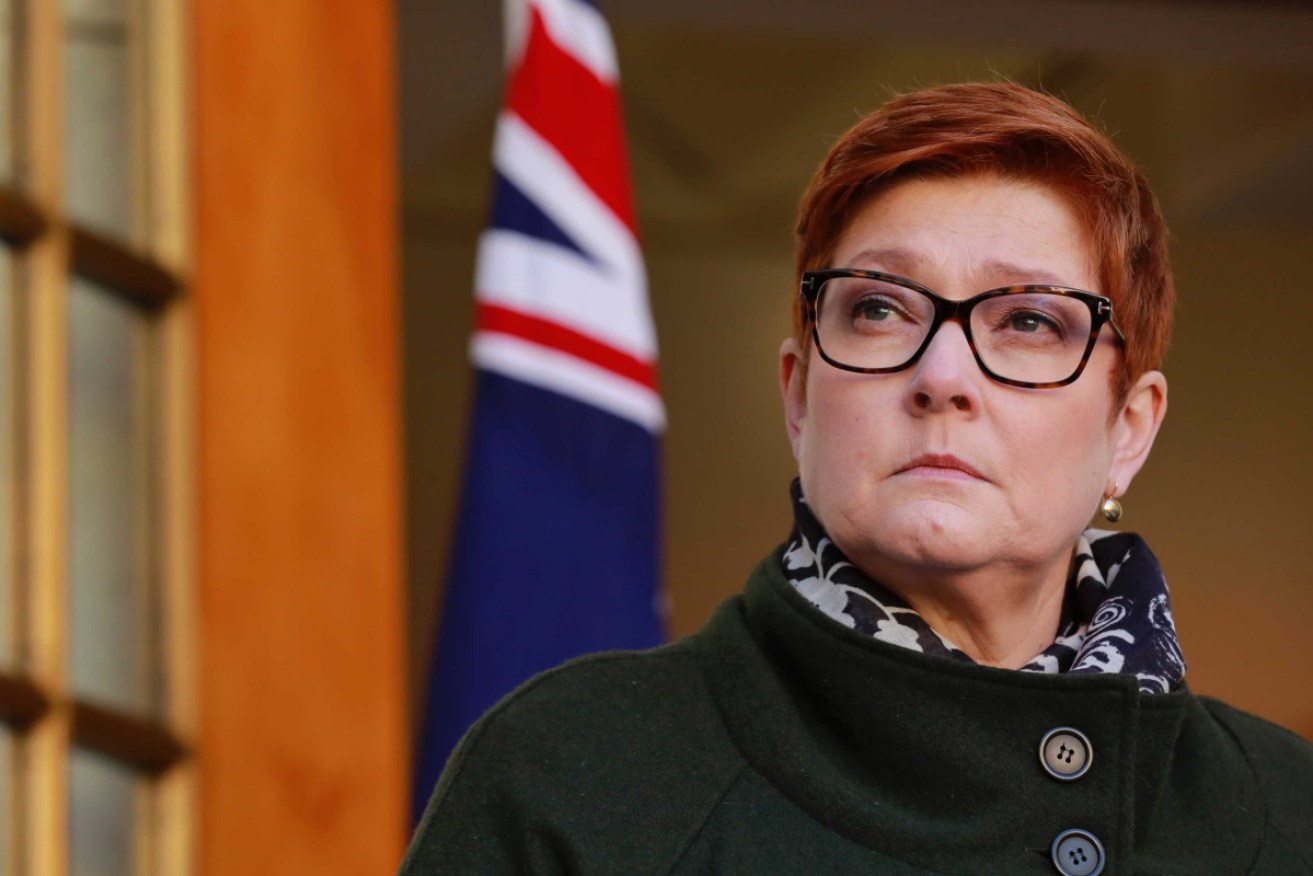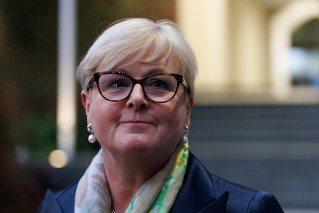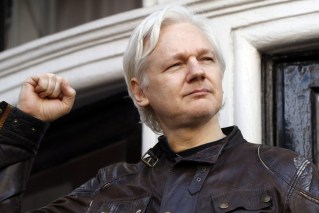China accuses Australia of provocation after Victoria’s Belt and Road deal is torn up


Foreign Affairs Minister Marise Payne asked China to grant Australian diplomats access to the trial. Photo: ABC Photo: ABC News
China has slammed Australia’s “provocative” decision to tear up Victoria’s Belt and Road Initiative agreement with Beijing, warning the move will further damage bilateral relations.
Foreign Minister Marise Payne announced on Wednesday night that the infrastructure deal had been cancelled under new foreign veto powers.
It is the first time the Commonwealth has used new powers that allow it to cancel agreements that state and territory governments, local councils and public universities strike with other countries.
China’s embassy in Australia responded swiftly, expressing “strong displeasure and resolute opposition” to Senator Payne’s announcement.
“This is another unreasonable and provocative move taken by the Australian side against China,” a Chinese embassy spokesperson said in a statement.
“It further shows that the Australian government has no sincerity in improving China-Australia relations.
“It is bound to bring further damage to bilateral relations, and will only end up hurting itself.”

China has restricted or frustrated Australian exports of barley, wine, grain and coal, but not iron ore. Photo: TND
Four Victorian deals cancelled
In December, the Morrison government granted itself the ability to torpedo deals between individual states and foreign powers under the Foreign Relations Act.
The foreign minister can assess such arrangements to check if they align with Australia’s foreign policy goals.
Senator Payne said four agreements would be cancelled, two of which related to Victoria’s Belt and Road deal for infrastructure investment.
“I consider these four arrangements to be inconsistent with Australia’s foreign policy or adverse to our foreign relations,” she said in a statement.
Victoria signed a memorandum of understanding in relation to the Chinese regional infrastructure initiative in 2018 and then signed a “framework agreement” with Beijing in 2019.
Areas of cooperation included increasing participation of Chinese companies in Victoria’s infrastructure program and promoting cooperation of Victorian businesses in China.
It also allowed Victoria’s engineering and design firms to bid for contracts for Belt and Road Initiative projects around the world.

This is a Belt and Road Initiative supply chain base being built in Lianyungang,Jiangsu, China last year. Photo: ABC
Andrews has warned of jobs being at risk
Victorian Premier Daniel Andrews has previously advised against the cancellation of the deal, saying it would place Victorian jobs at risk.
A state government spokeswoman told AAP the Foreign Relations Act was a matter for the Commonwealth.
“The Victorian government will continue to work hard to deliver jobs, trade and economic opportunities for our state,” she said in a statement on Wednesday.
Beijing has previously raised Canberra’s veto power as one of 14 grievances damaging to bilateral relations.
China has in the past 12 months launched a series of damaging trade strikes against Australia after Prime Minister Scott Morrison called for an independent inquiry into the origins of the COVID-19 pandemic.
The Chinese government also remains furious with Australia over foreign interference and investment laws and the decision to ban Huawei from the country’s 5G rollout.
Australia fears projects used to project China’s power
The BRI is a massive network of Chinese-funded infrastructure projects – including new ports, pipelines, railways and highways – stretching from Asia to Europe.
Australia has become increasingly anxious that it has been used as a vehicle for cementing the Chinese government’s influence and commercial interests across a vast swathe of the globe.
Victoria’s BRI agreements do not commit the state government to specific projects and are not legally binding. But federal government ministers have privately complained the agreements allowed China’s government to split the Australian domestic consensus on the BRI, handing Beijing an easy public relations win.
They’ve also warned it might dilute Australia’s attempts to press other regional countries to tread warily before signing investment deals under the BRI, and complained federal officials were not shown the final version of the agreement before it was signed by the Victorian government.
When the federal government introduced the veto legislation last year, Prime Minister Scott Morrison denied the laws were aimed primarily at Victoria’s BRI agreement with China.

Daniel Andrews signed a new deal to deepen the state’s engagement in the initiative in 2019. Photo: Chinese Embassy
But the two other agreements scrapped are both relatively obscure.
One is an agreement between Victoria’s Department of Education and Training and an Iranian government agency, while the other is a 1999 memorandum of understanding designed to encourage scientific co-operation between Syria’s Ministry of Higher Education and the Victorian Ministry of Tertiary Education and Training.
A Victorian government spokeswoman said: “The Foreign Relations Act is entirely a matter for the Commonwealth government.”
“Victoria will continue to work hard to deliver jobs, trade and economic opportunities for our state.”
-with agencies








